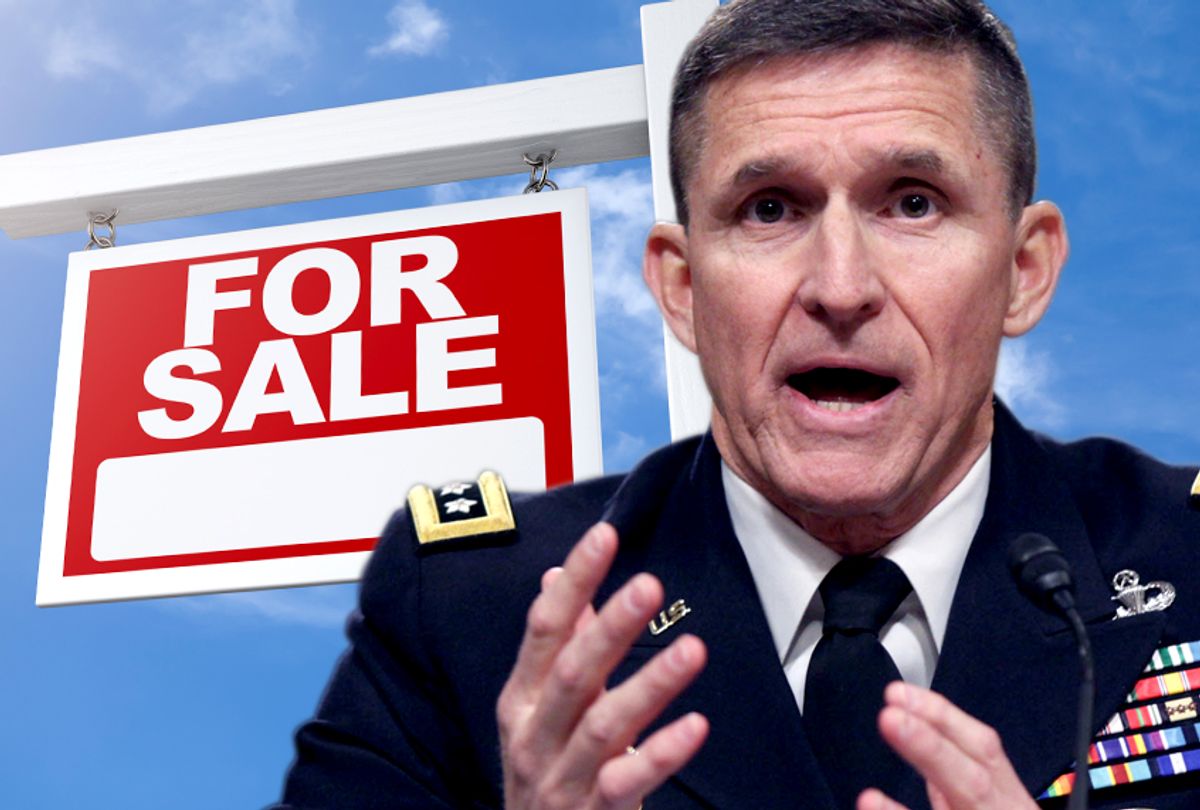President Donald Trump is facing another Saudi Arabia-related controversy in light of a report that top officials in his administration attempted to sell nuclear power plants to that country.
Former national security adviser Michael Flynn and Secretary of Energy Rick Perry are among the Trump officials who urged the president to sell nuclear power plants to Saudi Arabia despite warnings that doing so could harm America's national security interests, according to The Washington Post. White House lawyers and H. R. McMaster — then the chief of the National Security Council — advised the administration against doing so.
Despite these warnings, the matter was broached in the Oval Office as recently as last week.
This information became available to the public thanks to a 24-page report released by House Oversight and Reform Committee Chairman Rep. Elijah Cumming, D-Md. Among other accusations, the report claims that Westinghouse Electric would have benefited from a nuclear power plant deal with Saudi Arabia. This detail is noteworthy because Westinghouse Electric is a subsidiary of Brookfield Asset Management, a company that provided financial relief to Trump's son-in-law and adviser Jared Kushner.
According to the report, "multiple whistleblowers came forward to warn about efforts inside the White House to rush the transfer of highly sensitive U.S. nuclear technology to Saudi Arabia in potential violation of the Atomic Energy Act and without review by Congress as required by law — efforts that may be ongoing to this day." It added that the whistleblowers "warned about a working environment inside the White House marked by chaos, dysfunction and backbiting" and that many White House appointees would ignore it when they were ethics officials ordered them to stop engaging in controversial or potentially illegal activities.
Trump's relationship with Saudi Arabia has a source of controversy throughout his presidency, so much so that even some members of his own party have called him out on it. After the president seemed to side with Saudi crown prince Mohammed bin Salman over American intelligence agencies on the murder of Washington Post journalist Jamal Khashoggi, Sen. Lindsey Graham of South Carolina tweeted "it is not in our national security interests to look the other way when it comes to the brutal murder of Mr. Jamal #Khashoggi. I firmly believe there will be strong bipartisan support for serious sanctions against Saudi Arabia, including appropriate members of the royal family, for this barbaric act which defied all civilized norms."
He added, "While Saudi Arabia is a strategic ally, the behavior of the Crown Prince – in multiple ways – has shown disrespect for the relationship and made him, in my view, beyond toxic. I fully realize we have to deal with bad actors and imperfect situations on the international stage. However, when we lose our moral voice, we lose our strongest asset."
Despite these concerns, Trump's administration did not reduce its ties to Saudi Arabia, with Kushner continuing to reach out to the country despite criticisms from his own party. Kushner has also been accused of supporting a military blockade against Qatar by Saudi Arabia and the United Arab Emirates after that country refused to help him finance his 666 Fifth Avenue property (which was later supported by Brookfield Asset Management in a 99-year lease). Trump even excluded Saudi Arabia from his controversial Muslim ban in 2017, as well as other predominantly Muslim countries with which the Trump Organization is doing business.



Shares